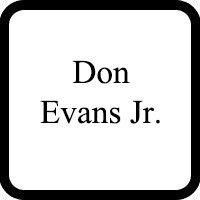Wilmington Misdemeanor Lawyer, North Carolina
Not enough matches for Wilmington Misdemeanor lawyer.
Below are all Wilmington Criminal lawyers.
Bruce A. Mason
✓ VERIFIEDCriminal, Juvenile Law, Accident & Injury, Traffic
Bruce A. Mason grew up in Fairmont, West Virginia. He graduated magna cum laude from West Virginia University in 1986 with a Bachelor of Science degre... (more)
Don Tolbert Evans
✓ VERIFIEDAccident & Injury, Real Estate, Criminal, Motor Vehicle, Estate
Firm has 35 years experience, continuing a family tradition of lawyers stretching back 100 years.
Firm has 35 years experience, continuing a family tradition of lawyers stretching back 100 years.
FREE CONSULTATION
CONTACTChristina Rivenbark
Health Care, DUI-DWI, Criminal, Personal Injury, Car Accident
Status: In Good Standing
FREE CONSULTATION
CONTACTMonica Rathke Savidge
Social Security -- Disability, Social Security, Government, Criminal
Status: In Good Standing
FREE CONSULTATION
CONTACTBarry Keith Henline
Accident & Injury, Traffic, Criminal, DUI-DWI
Status: In Good Standing Licensed: 11 Years



